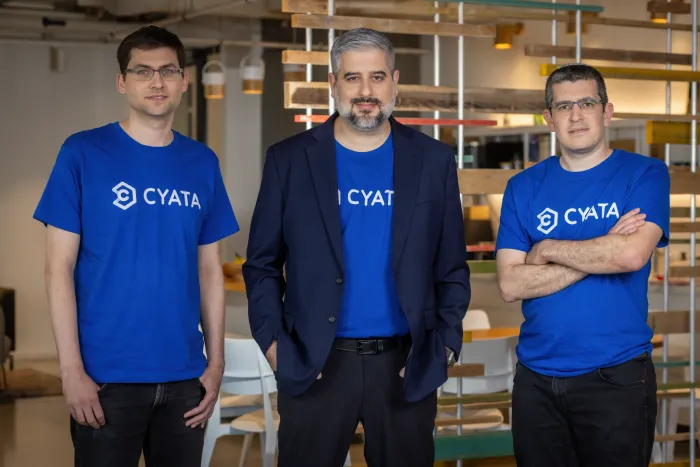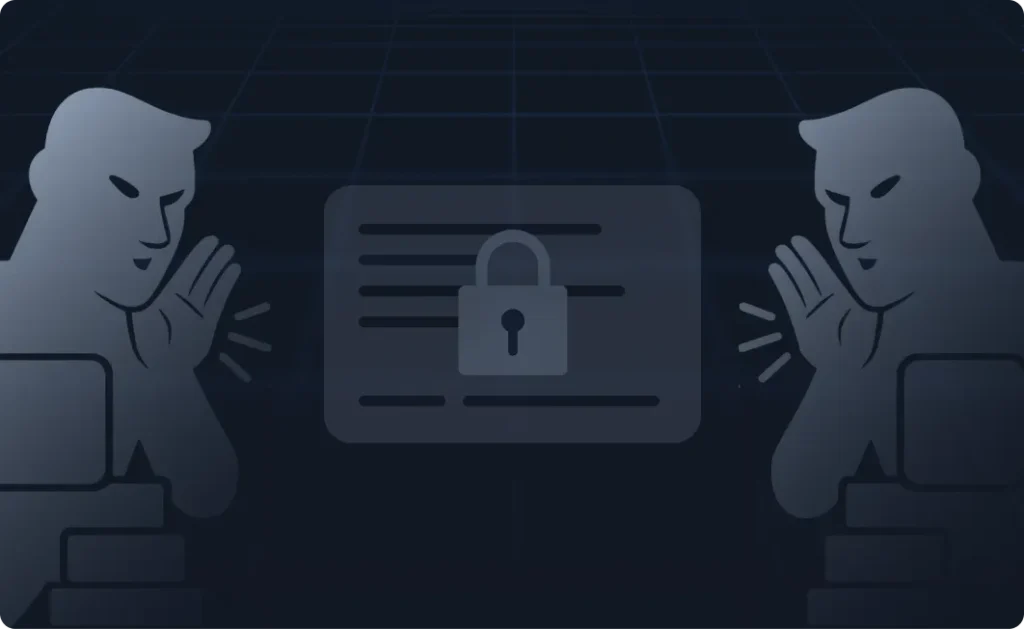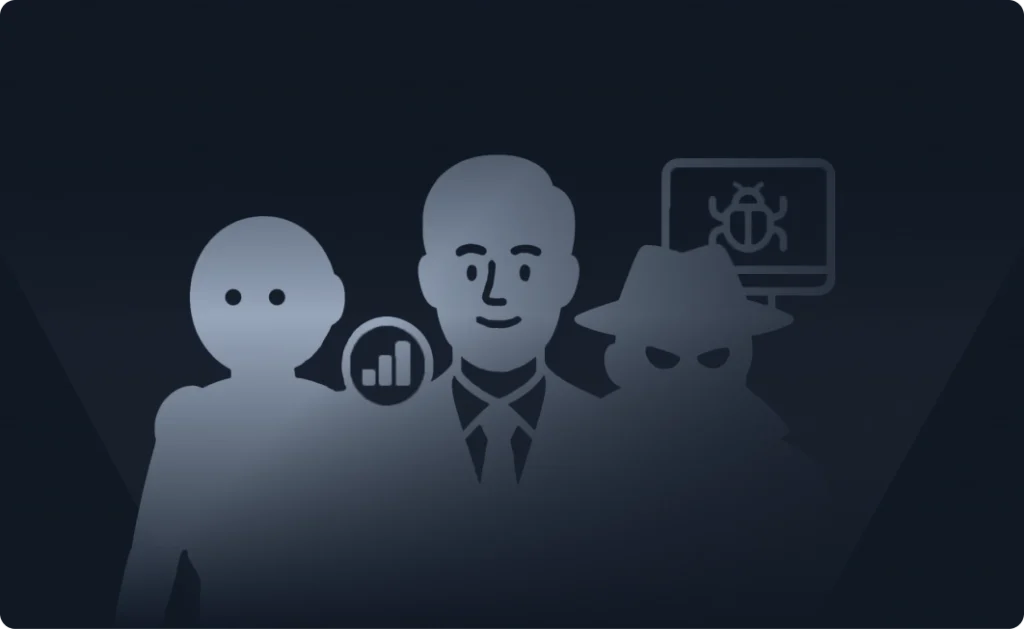There’s a silent revolution underway. AI isn’t just augmenting human labor – it’s actively replacing it in critical areas, and that’s not just inevitable, it’s beneficial. This transformation is radically reshaping business productivity, driving efficiencies that rewrite economic realities, and creating opportunities previously thought impossible. Organizations that embrace AI’s potential to autonomously handle tasks and decisions will surge ahead, unleashing human talent for more strategic pursuits. Those who resist or ignore this shift risk being quickly outpaced by competitors who harness AI to its full potential.
At Cyata, we sensed this foundational shift long before it became obvious. It was an intuitive awareness that rippled through our professional lives, a sensation that something foundational was shifting around us. As seasoned cybersecurity leaders who cut our teeth at Check Point, Cellebrite, and Unit 8200, we were trained to spot anomalies – subtle signals pointing to significant transformations.

Initially, our attention was drawn toward privileged access. We recognized it as a critical security challenge that needed modern solutions. But as we delved deeper, exploring the evolving dynamics of privilege within enterprises, we uncovered a surprising reality: AI wasn’t merely assisting work; it was actively performing it, often with elevated privileges.
Over countless coffee-fueled discussions, spirited debates, and late-night conversations, our team grappled with this startling realization. AI was scripting complex workflows, calling APIs, accessing sensitive data, and independently orchestrating critical business decisions. What once seemed like minor innovations were now clear indicators of profound transformation. It wasn’t just automation – it was autonomy.
“Agentic AI” has quickly become an overly used catch-all marketing term that means many different things to many people.
Yet despite the buzzword fatigue, it captures an essential shift – autonomy and capability that demand genuine innovation.
We observed the landscape closely, analyzing emerging startups and innovative products springing up around AI security. Many early entrants seemed narrowly focused on refining model outputs, managing hallucinations, or preventing prompt injections. While undeniably important, these approaches felt fundamentally incomplete. Actions, not outputs, create risk. Actions like API calls, tool integrations, and autonomous decisions affecting real-world enterprise environments.
We kept asking ourselves, “Is this really the core problem? Is focusing solely on model behavior enough?” The answer was resounding – this was a fundamentally different problem. It was about identity and access, about governance and oversight of actors capable of reasoning, decision-making, and impersonation at superhuman speed and scale. A problem we had yet to see addressed comprehensively.
This conviction crystallized dramatically during a pivotal conversation. We were meeting with the CISO of a mid-sized tech firm – a deeply respected professional known for meticulous identity management and rigorous security practices. He walked us confidently through his architecture, highlighting the robustness of their Single Sign-On solutions, just-in-time access controls, and meticulous audit logging.
Then we asked a simple yet transformative question: “How are you handling agentic identities?
You know, those AI copilots, RPA bots, autonomous coding assistants, and orchestration agents acting independently within your systems?”
The Zoom call went quiet. The CISO hesitated, eyes momentarily distant, gears visibly turning. It was a silence heavy with realization. He finally admitted there was no answer – not even an inadequate one. No defined policies, no clear accountability, no identity lifecycle management. It was a vast blind spot, glaringly evident and alarmingly vulnerable. If this seasoned expert was caught unprepared, the urgency to solve this challenge was undeniable.
For over 20 years, human identities have been carefully managed with detailed lifecycles, role-based permissions, and strict governance. Non-Human Identities (NHIs), by contrast, are static, long-lived, and narrowly permissioned entities. But agents represent something entirely different – they sit at the opposite end of the spectrum.
Agents are not NHIs; they’re more human than humans, exhibiting capabilities beyond any traditional category.
They are “superhumans,” or humans on steroids – capable of making decisions (and mistakes) with astonishing speed, persistence, and scale.
This powerful insight became the bedrock of Cyata’s mission: providing unprecedented visibility, oversight, and control over the fastest-growing, least understood identities in modern enterprises – agentic AI.
At Cyata, we’re not merely tracking industry trends. We’re actively shaping the future by constructing the first dedicated control plane specifically tailored for agentic identities. Our platform discovers these identities across both SaaS and local environments, associates them with their human owners, assesses risk in real-time, and delivers deep forensic observability of their actions, decisions, and intent. We enable granular, just-in-time access policies, seamlessly integrated with human oversight where necessary – preserving the extraordinary power of agents without compromising security.
This isn’t some distant, speculative future. It’s our current reality.
Enterprises are rapidly adopting autonomous AI agents: according to PwC’s May 2025 AI Agent Survey, 79% of companies report that AI agents are already in use in their organizations, and 66% of those say they’re already generating measurable productivity gains.
Yet fewer than half have fundamentally rethought how work gets done, and 46% of respondents worry they might soon be outpaced by competitors who are deploying agents more strategically.
This surge in adoption and real results underscores our conviction: agentic identities are no longer a future concern – they are a pressing reality today.
Our team – drawn from Cellebrite, Check Point, and Unit 8200 – brings unparalleled experience in addressing complex threats, building secure solutions, and navigating adversarial environments. We’ve dissected malware, countered nation-state actors, and created industry-defining cybersecurity tools trusted globally. With Cyata, we’re channeling this experience into securing the next critical frontier: agentic identities.
Why did we create Cyata? Because someone needed to illuminate this blind spot, to declare unequivocally that every identity with privilege and decision-making power – human or AI – must be visible, governed, and accountable.
We proudly take up this mantle.
Yet our journey is just beginning. As AI agents evolve, so too will Cyata. We’re committed to partnering with visionary organizations and industry leaders who share our urgency, ambition, and dedication to safely harnessing AI’s enormous potential. Together, we aim to shape responsible, identity-first approaches to AI adoption, driving integrations, alliances, and groundbreaking research.
If you believe, as we do, in the transformative power of secure agentic AI, join us. Let’s build this future – together.







